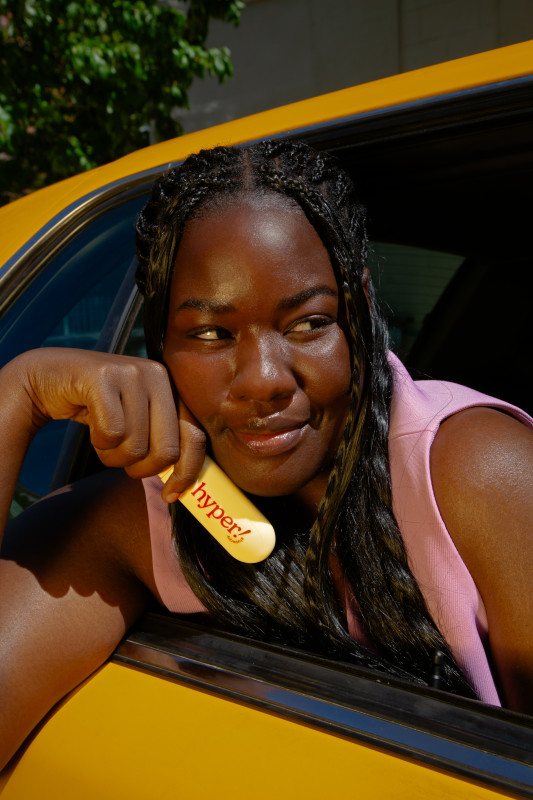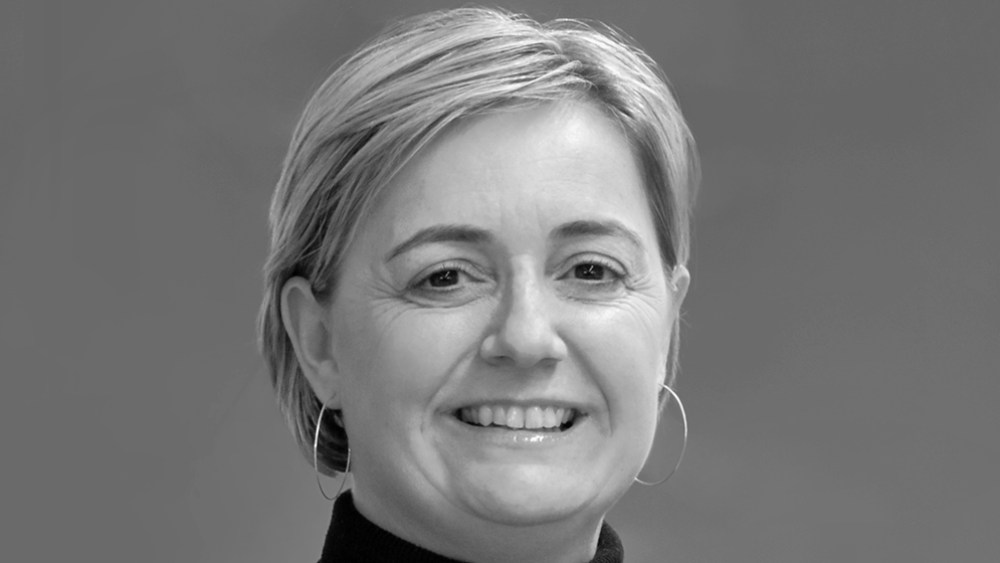

Photo: Courtesy of Hyper Skin
On Monday, Desiree Verdejo, the founder of indie beauty brand Hyper Skin, took to social media to lift the curtain on the realities of running a small company amid tariff uncertainty in the U.S. Posting to both her personal Instagram account as well as the brand’s, she took transparency to a new level, appealing directly to customers to support the business by pre-ordering out-of-stock products.
“Last month I had to ask myself if Hyper Skin could make it in 2025. I stood in my empty warehouse, staring at shelves that usually hold thousands of your favorite products. The emptiness was painful,” she wrote. “The truth is, 2025 has tested us in ways I never imagined. Building a growing indie brand that’s proudly self-funded has always come with business challenges, but when unprecedented tariffs collided with supply chain chaos, our carefully balanced ecosystem tipped.”
In response to an outpouring of messages from customers desperate to restock their sold-out Hyper Skin favorites, Verdejo decided to do something unprecedented herself: She announced a “preorder campaign” encouraging shoppers to purchase their favorite Hyper Skin products before June 6. “By ordering [in that time frame], you’re not just restocking your favorites — you’re helping us reach the minimum quantities we need to replenish these formulas,” she wrote.
Hyper Skin has always focused on its community, says Verdejo, so being up front about what the company needs is in perfect alignment. “We decided to come to our community and try to get in front of this conversation to really ramp up our cash reserve so that we can order [product re-stocks],” she tells Fashionista.
Beyond the obvious need for cash flow to support the brand’s (now increasingly expensive) production costs, she hopes that offering transparency may inspire empathy and patience in frustrated Hyper Skin customers who haven’t been able to get their products, or who felt ignored by the brand.
“As a small business, we don’t have a big team for customer service and for getting back to people. So this was really great way to let people know where we are,” says Verdejo.
This isn’t the first macroeconomic challenge the brand has faced. Verdejo founded Hyper Skin in 2019 — self-funding the project with $12,000 — only to be met shortly thereafter by a global pandemic, followed by suddenly skyrocketing demand for Black-owned brands in the wake of George Floyd’s murder and Black Lives Matter protests. But the higher purpose of the brand — its dedication to “Hyper joy, our take on Black joy,” as Verdejo puts it, and serving its community of fans — has kept the founder motivated through it all.
And for the most part, Hyper Skin’s story is one of stability and growth. The company saw early success, bringing in $750,000 in its first year, per Verdejo. “We have, over the course of five years, had very stable, consistent growth year over year,” says the founder.
Photo: Courtesy of Hyper Skin
She attributes that steady growth to the company’s “conservative” approach to distribution expansion and product launches. It got Sephora’s attention, and the retailer stocked the brand in 250 of its brick-and-mortar locations, as well as online. But in 2025, amid supply chain issues and spiking tariff-related costs, Sephora has been forced to pull Hyper Skin from its store shelves. The brand remains shoppable on Sephora.com.
And that “conservative” approach to product rollout didn’t prevent the brand from investing heavily into creating its own sunscreen formula (Hyper Daily Invisible for All SPF 50), notoriously one of the most difficult and costly product categories to bring to market.
“We’re a hyperpigmentation brand, and wanted to make it clear that we plan to attack all areas that speak to our community,” Verdejo explains. “We’re really proud of that formula. But for a self-funded brand, that was a major investment. It was a big deal for us to take such a leap.” That put the company in a perilous position financially, making the margin for error a slim one — “everything needed to be perfect” after that, per Verdejo. So the timing of the supply chain chaos and tariffs hit particularly hard.
Verdejo is honest about recent investment difficulties, too: She attempted to raise VC funding in 2024, but faced repeated rejection and criticism that the brand is “too niche.” Since the problems of 2025 require “a higher amount of capital to work around,” that’s been particularly troubling, says Verdejo.
“I know some brands placed their orders late last year [before the tariffs were enacted] and stocked up for 2025. We weren’t able to do that; our cash reserves didn’t allow it,” says Verdejo. Hyper Skin’s supply chain was hit by the 145% tariffs on imports from China, which prevented the company from replenishing after the Black Friday sales rush, as is standard for many brands.
So Hyper Skin started out Q1 of 2025 with drastically reduced inventory, which Verdejo knew would continue to be an issue through the year. “We sat for a few weeks strategizing, talking to our retailers — we were trying to have some investment conversations, but there’s a heavy level of conservatism as it relates to raising right now, especially when we’re saying, ‘Hey, we haven’t really had high sales because we haven’t had products.’ So it hasn’t been an ideal scenario for raising,” she notes.
She also turned to Sephora for guidance: “When we went to Sephora and expressed that we weren’t able to satisfy a few recent orders and may not be able to be at that usual level of business for a few months, they worked with us to bring the brand to their dot-com,” says Verdejo. She calls the move “a hard decision,” but also “a vote of confidence in our relationship.” “Sephora, as our core retail partner, didn’t say, ‘Well, we can’t work with you,’ but… wanted to sit down week over week and come to a conclusion.”
When Verdejo saw the news that the Trump Administration had entered into a “trade truce” with China, she felt it was the right time to “bring our community in to let them know what’s going on,” she says. “The idea [of the preorder campaign] was really for us to ramp up cash reserves and be able to replenish using that amount.”
The founder hopes that “those who need product immediately” will turn to Sephora.com, where Hyper Skin products remain in stock (for now); while those who are in less urgent need will preorder direct from the brand’s site and understand fulfillment might take time (arriving in customers’ hands by July if all goes according to plan.) The brand’s product pages now display progress made towards its preorder goals; at press time, it had only received 29 out of 1,500 needed for its SPF 50 Sun Drops, 93 out of 2,500 for its Vitamin C Serum and 48 out of 1,500 for its Gentle Brightening Cleansing Gel.
Verdejo has been moved by community support from her consumer base as well as fellow founders. (The brand’s Instagram post has messages of solidarity from the founders of Ami Colé, Dieux, Hanahana Beauty and 54 Thrones, to name a few. Verdejo says Topicals founder and CEO Olamide Olowe placed an order herself.) “I have a great group of founders of brands that you would think are our biggest competitors. We are all in communication with one another, and so many of our challenges are the same, no matter how much funding one brand has or how big another brand’s team is,” she says.
Verdejo remains steadfast in her belief that Hyper Skin will not only weather 2025, but come out of it on top. “I think it’s going to be a tough couple of months, but I think that the year has the potential to be a really strong one for us, even a historically strong one,” she says.
From emerging startups to Fortune 500 companies, brands are building awareness, driving sales and gaining followers by partnering with Fashionista. Discover our unique digital offerings here.
#Hyper #Skin039s #CommunityBased #Preorder #Strategy #Tariff #Survival





